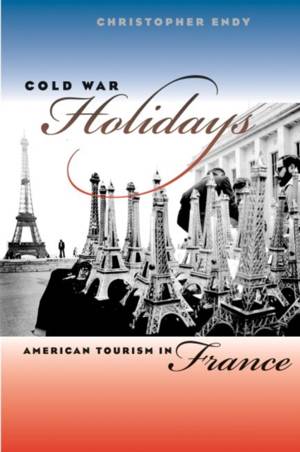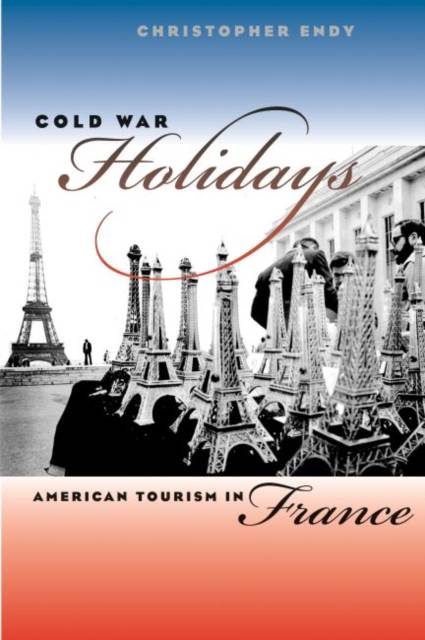
- Afhalen na 1 uur in een winkel met voorraad
- Gratis thuislevering in België vanaf € 30
- Ruim aanbod met 7 miljoen producten
- Afhalen na 1 uur in een winkel met voorraad
- Gratis thuislevering in België vanaf € 30
- Ruim aanbod met 7 miljoen producten
Omschrijving
Moving beyond traditional state-centered conceptions of foreign relations, Christopher Endy approaches the Cold War era relationship between France and the United States from the original perspective of tourism. Focusing on American travel in France after World War II, Cold War Holidays shows how both the U.S. and French governments actively cultivated and shaped leisure travel to advance their foreign policy agendas.
From the U.S. government's campaign to encourage American vacations in Western Europe as part of the Marshall Plan, to Charles de Gaulle's aggressive promotion of American tourism to France in the 1960s, Endy reveals how consumerism and globalization played a major role in transatlantic affairs. Yet contrary to analyses of globalization that emphasize the decline of the nation-state, Endy argues that an era notable for the rise of informal transnational exchanges was also a time of entrenched national identity and persistent state power.
A lively array of voices informs Endy's analysis: Parisian hoteliers and café waiters, American and French diplomats, advertising and airline executives, travel writers, and tourists themselves. The resulting portrait reveals tourism as a colorful and consequential illustration of the changing nature of international relations in an age of globalization.
Specificaties
Betrokkenen
- Auteur(s):
- Uitgeverij:
Inhoud
- Aantal bladzijden:
- 304
- Taal:
- Engels
- Reeks:
Eigenschappen
- Productcode (EAN):
- 9780807855485
- Verschijningsdatum:
- 3/05/2004
- Uitvoering:
- Paperback
- Formaat:
- Trade paperback (VS)
- Afmetingen:
- 153 mm x 237 mm
- Gewicht:
- 439 g

Alleen bij Standaard Boekhandel
Beoordelingen
We publiceren alleen reviews die voldoen aan de voorwaarden voor reviews. Bekijk onze voorwaarden voor reviews.








